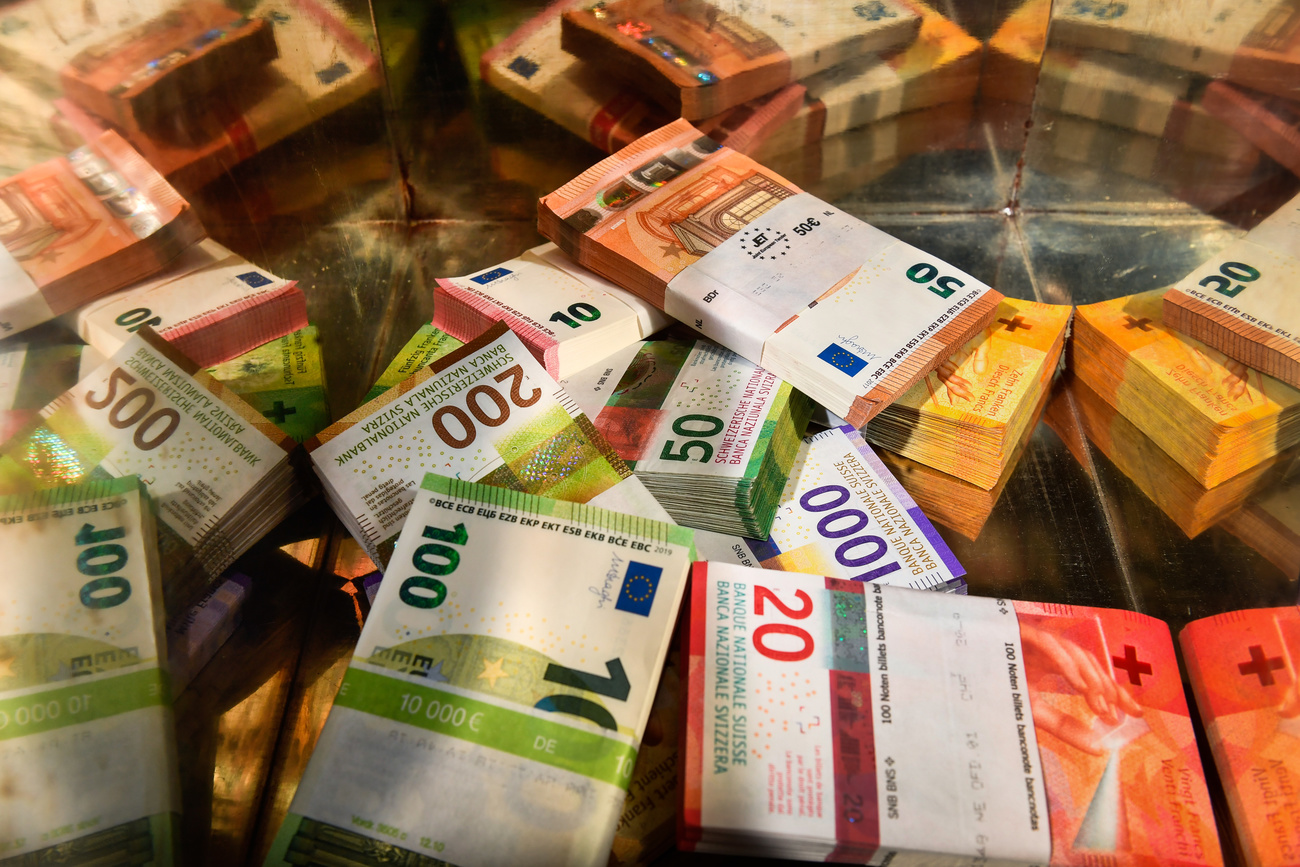
Strong franc ‘saved Switzerland from excessive inflation’

Swiss National Bank (SNB) President Thomas Jordan said the franc’s strength played a key role in keeping inflation low compared with the United States and the euro area.
+ Get the most important news from Switzerland in your inbox
The fact that price growth never exceeded 3.5% in recent years is mostly down to the country’s exchange rate, Jordan told business representatives at an event Tuesday in canton Schwyz, Switzerland. By comparison, US inflation peaked at 9.1% in 2022, while it reached a high of 10.6% in the euro zone that same year.
+ How stock market volatility impacts the Swiss franc
“If you want to protect yourself against imported inflation, then the franc must appreciate,” Jordan said. That’s why the central bank stopped buying foreign currencies to counteract franc inflows in 2022 and even reduced its holdings of them through the end of 2023, he said.
Jordan, who’s due to leave his post next month, said the franc’s appreciation allowed the SNB to raise interest rates less drastically than its developed-market peers. The central bank raised its policy rate to 1.75% before starting to ease in March, while the European Central Bank and the US Federal Reserve hiked borrowing costs to much higher peaks.

More
A blessing and a curse: the strength of the Swiss franc
Still, worries about the Swiss currency’s traditional allure as a safe haven for investors persist. The country’s biggest lobby group for manufacturers has urged the SNB to intervene to stop further franc strengthening, which they say hurts exports.
The franc has recently stabilised, having surged before on worries about a potential US recession and turmoil in Japanese.
Analysts and markets diverge on how this affects the path for Swiss rates. While a majority of economists surveyed by Bloomberg expects only one more 25 basis-point cut in September, to 1%, traders are betting on more loosening.
©2024 Bloomberg L.P.

In compliance with the JTI standards
More: SWI swissinfo.ch certified by the Journalism Trust Initiative































You can find an overview of ongoing debates with our journalists here . Please join us!
If you want to start a conversation about a topic raised in this article or want to report factual errors, email us at english@swissinfo.ch.